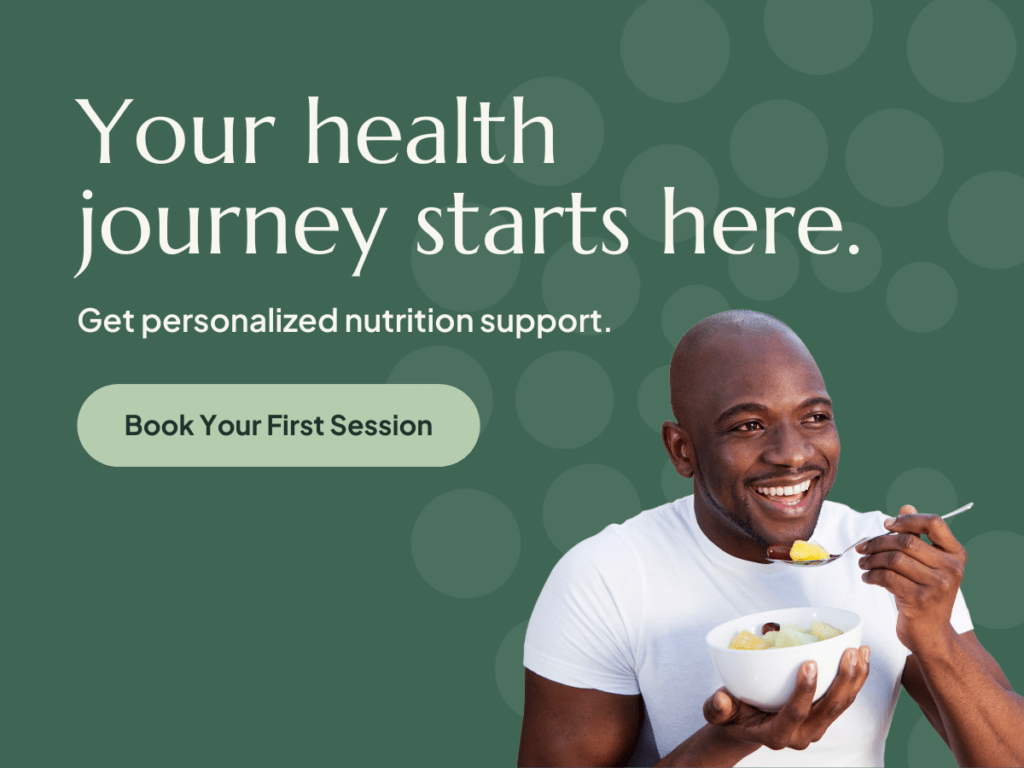As a nutrition practice that prioritizes cultural competence and diversity, we at Culina Health understand the importance of personalized nutrition care, and the power it holds to support all patients—especially those from marginalized backgrounds. For far too long, communities like the LGBTQ+ community have been held back by negative experiences with health care that can lead to long-term negative health outcomes. Recently, we chatted with Bari Glassman, Culina Health Registered Dietitian and member of the LGBTQ+ community, on how he approaches nutrition care for this population and his approach to treatment in general. Read on and learn more about how nutrition care can support LGBTQ+ individuals!
About Bari Glassman, MS, RD, LDN
What brought you to the nutrition care profession?
After experiencing several health setbacks related to my body dysmorphia, I began to do my own research in order to better nurture and support my health and wellbeing. Along the way, I found nutrition to be the underestimated superhero that ultimately led to my self-care and self-love. Understanding how to care for myself, feed and fuel my body in ways that were both delicious and nutritious, had extremely powerful effects on my mindset and health—especially after feeling disconnected from my body for so long previously.
What elements of your lived experience do you bring to your work?
As a transgender individual, I have gathered a unique empathetic perspective that allows for deeper insight into the LGBTQIA+ experience. I approach my patients in a way that encourages them to use their own distinct voice, rather than trying to give them the right words or tell their story for them. My goal is for them to feel that they are in a shared space, alongside someone who is actually listening to them—all with the utmost care and respect.
Nutrition Care for LGBTQ+ Patients
What are some common struggles LGBTQ+ patients face, and how do you address these through nutrition care?
Through my work and relationships with the LGBTQ+ population, I have observed a great deal of self-neglect. For many of us, it is far easier to support others, or give to those around us, yet we still struggle to care for and validate our own needs. This population in particular is at the forefront of judgement, whether that be from themselves or the outside world. I address this epidemic of self-neglect by working to establish rapport with my patients, and help them find the words and habits that allow them to build up their confidence and empowerment, through nutrition-related goals.
How can an RD tailor their care to be more supportive of LGBTQ+ patients?
Far too often in a medical or healthcare setting, queer people aren’t affirmed in their identity. As a first step, make sure you are addressing a patient by their correct pronouns and name, and using terminology they are comfortable with—things that make them feel empowered and like themselves, versus stigmatized or judged. Never assume that you know anything about your patient’s experience, even if you’ve worked with people who seem like they may have similar experiences at first glance. You may guide them in such a way that they are able to share with you once you gain their trust, but their experience is their own.
What is one thing you want fellow providers to know about working with LGBTQ+ patients?
Listen to their voice, respect their experience, and know that you may be the only support they have. You can make a difference. It just takes one special provider to change the life of a member of the LGBTQIA+ population and make them feel seen and supported.
Bari’s Approach to Nutrition Care
What’s one patient success story that sticks out to you?
I worked with one woman who was highly stressed with work commitments, and as a result was neglecting her needs by skipping meals. In addition to her busy schedule, she was brought up in a food-rule focused household where body image was everything and judgment was placed on certain foods and eating habits. Together, we worked to rediscover her love of food and cooking, and in the process, a reignited sense of self-compassion and care through the preparation of meals and the intentionality to make time for herself. To date, we continue to share recipes, educational blog posts, and brainstorm new flavor combinations to maintain excitement around food and how it nourishes our creativity and self-appreciation
What’s a common misconception about nutrition care that you’d like to dispel?
That we as dietitians provide “cookie cutter” meal plans. Some patients may request this, or benefit from it, but being a dietitian is so much more than just sharing a meal plan or eating plan. We are a part of each patient’s support system, and our goal is to provide high-quality individualized care in order to optimize nutrition status. There are many methods that can be used to make that happen—from nutrition education to working through past trauma around food, analyzing labs and collaborating with outside providers, and so much more. It all starts with understanding your patient and their method of learning and communication.
The Bottom Line
What is one thing you want prospective patients to know?
Nutrition has power. Period. Food holds memories. It brings people together. It can radically transform our self-worth and the way we care for ourselves, and lead to trickle-down changes that impact our daily lives in a positive way.
Don’t sleep on the power of food to change your life.
-Bari Glassman, MS, RD, LDN
Work with a Culina Health dietitian
We know that having negative experiences with healthcare providers is all too common, especially among people from marginalized communities who have been impacted by structural racism. Working with a Registered Dietitian is a great way to take your healthcare into your own hands, alongside a supportive professional who meets you where you are, with compassion. You can have a healthy diet that includes your favorite foods, and helps you reduce your risk of chronic conditions. Culina Health is in-network with most major insurance companies and the majority of our patients have their sessions covered by their insurance. Get matched with a Culina Health RD today.






